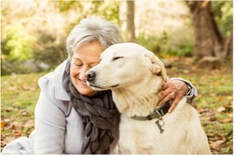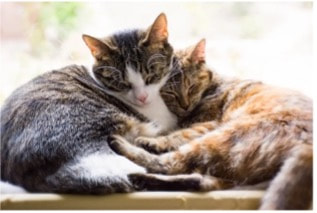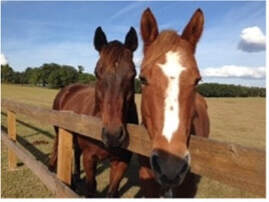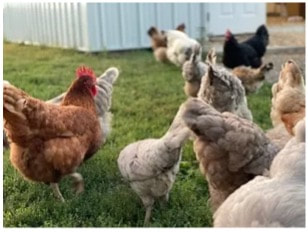|
Don't leave Fido at home  For those having a hard time with their health, feeling lonely or in want of an unbiased listening ear, an animal can be a balm to the soul. So how can the smallest and softest on this planet make an impact on the oldest and toughest among us? And how can animals be included in the day to day lives of those in Aged Care and Independent Living and Retirement Villages across NZ? Who can resist petting a soft, fluffy animal? I’d wager that the soulful eyes of a cute pooch could soften the heart to even the crankiest human. In fact, studies show that just 15 minutes with a dog, cat, or other animal can increase brain activity and serotonin levels in seniors. Being able to bring a pet with you can be a make or break for people choosing to leave their own home in the community and relocate to a village. For those who are widowed, their pet is more than just an animal. It’s their sole form of day-to-day company. For people who aren’t so interested in being socially engaged, it can be even better than a human. Are all villages on board with bringing pets along? One of the reasons John (name changed) settled on his Retirement Village was that he could bring his feline friend Mittens (name changed) along, when he moved in with his wife from their large family home to a more sensibly sized independent living townhouse. Mittens had more or less chosen to move in with John some years before, after abandoning her owners for the affection and food on offer at his house. Although feisty at times, John and Mittens became good buddies, especially appreciated when his wife was away. Not keen to leave his home, John agreed to move eventually as long as Mittens was in tow. Ryman Healthcare allows residents who live independently to have pets, so when someone is moving in and wants to bring a pet, they meet the manager to ensure they are appropriate, and then get written into the contract. John’s townhouse has a convenient cat flap, and his neighbours also keep cats. In fact their shared love of feline company encouraged fresh friendships with those around him as they chatted about their animals.  So in what capacity can animals be found in villages? There are recent heart-warming stories of cats adopting villages. As we all know, cats have staff, not owners so it makes sense that they like to choose their own abode. During the covid lockdown of 2020, Coco the cat chose to move into Rita Angus Retirement Village in Wellington. Cruising the hallways during the day, Coco enjoys plenty of attention from the residents and she’s totally charmed the security guards. Bella is the Maygrove Hospital cat. By day she’ll snooze in the office, by night she roams the hospital. Night staff make sure she is fed, but she still tries her luck with getting extra from the day staff – especially a creamy treat! Another cat who’s cottoned on to the benefits of retirement village living is Digby who arrived at Wairarapa Village in Masterton with his owner. Eventually his owner passed away and Digby was adopted by the village, who now keeps an HR file on Digby. The feline resident does daily rounds of the occupants and happily rests in their gardens. If a facility won’t allow your traditional cat or dog (or fish or parrot) – are there other options? One of the most unusual surfaced back in 2014. The NZ Herald reported on Auckland’s Selwyn Heights retirement village who had purchased four robot seals known as “Paro” for residents to interact with. A trial carried out at the facility found residents were less lonely and more engaged after sessions with Paro. Could robots have a future in healthcare? Robotic animal love could bring a faux version of physiological benefits similar to the real things but without the ongoing inconvenience of buying food or taking them outdoors for a walk on a rainy day. There may be an untapped target group for the likes of FurReal Friends Pets Toys -if they can stimulate the brain of a growing kid, then why can’t a robotic seal help lower blood pressure and improve Grandad’s day?  If you live in a village where they have a non-replacement pet policy and your fur-child passes on, what other options are there for bringing a fluff-bomb of love to your doorstep? Maygrove Village in Orewa allows residents to have a pet as long as it is not a nuisance to others, fully vaccinated and leashed in common areas, but they have also had a positive experience with therapy animals. The hospital on site has pet therapy visits as well as a resident cat who lives there. Toni Hatton, Assistant Manager at Maygrove says “The pet visits are incredible. We even have a horse called Peanut who visits sometimes. She’s great in the lift, well toilet trained but does not like to get back in her float to leave, she would rather graze on our lush lawns! The hospital/palliative residents just adore her” – Peanut isn’t the only horse being kept busy with animals. Tyson the therapy horse visits the elderly and terminal patients in the Tasman district and provides a quiet connection to people when no words are needed. Originally Tyson would stand outside but graduated indoors to visit those too sick to venture out of their rooms. An organisation who offers beneficial animal encounters is Canine Friends Pet Therapy. They specialise in pet therapy by facilitating canine visits at hundreds of retirement homes, hospitals, hospices, universities and even businesses across New Zealand. As the name implies, they specialise in therapy dogs and aren’t picky about size or breed, but the dogs do need to pass an assessment before being accepted into the programme  It's a basic concept, patting a pet = good for us! But overseas in England they’ve taken it one step further with a more innovative approach than just a few pats to a furry face, and it’s something that could easily be taken up here in Aotearoa, particularly now that eggs are at a premium. ‘HenPower’ brings together older people and hen-keeping to combat loneliness and depression and improve wellbeing. Found in more than 40 care homes, HenPower creatively ‘hengages’ older people in arts activities and hen-keeping to promote health, wellbeing and reduce loneliness. So, if you’re looking to move into a Retirement Village and want to bring Rover don’t assume it’s a no-go. Check your top choice is a pet welcoming facility, and, importantly, what their replacement policy is for pets. If Rover dies, can you have another Rover Jnr? If not, talk to your activities manager about pet therapy visits, or if that fails maybe you’ll be in luck and they’ll buy some robotic pups (or real life hens) to pat. Ref: Aged Advisor NZ NZ’s Best Magazine Comments are closed.
|
AuthorShonagh O'Hagan Archives
July 2024
|

 RSS Feed
RSS Feed